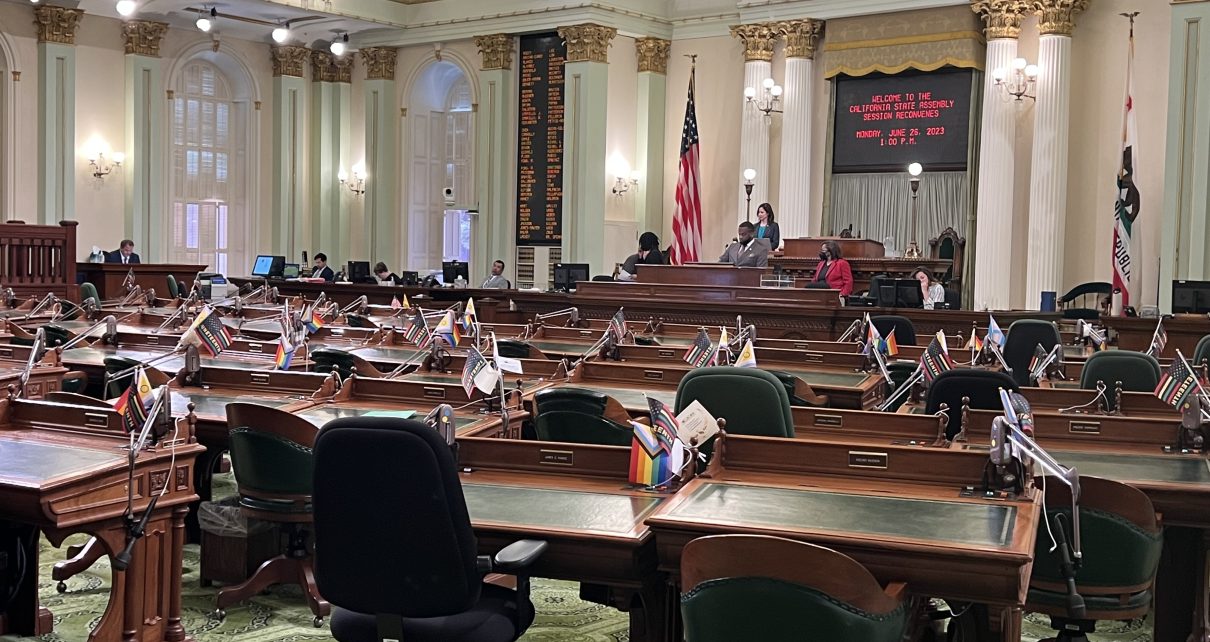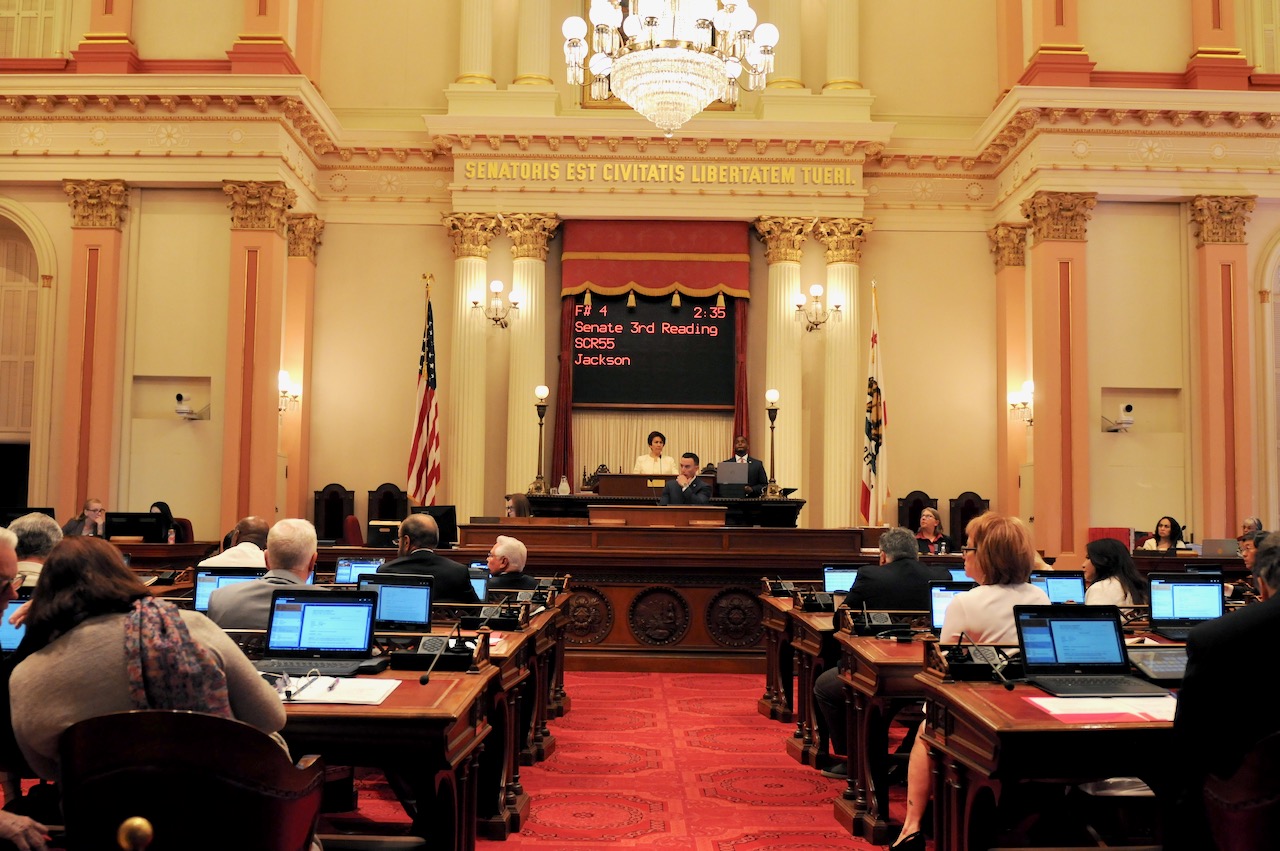
California State Senate Chambers. (Photo: Katy Grimes for California Globe)
Frequently Asked Questions about Governors Allowing Bills to Become Law Without Signature
Has a bill become law without a Governor’s signature in the past?
By Chris Micheli, March 25, 2024 2:30 am
What can California’s Governor do with bills that reach his or her Desk? The Governor has three options when a bill reaches the Governor’s Desk: sign the bill (and it becomes law), veto the bill (and the bill does not become law, unless the Legislature overrides the veto), or allow the bill to become law without his or her signature.
What does the California Constitution provide for bills becoming statutes without the Governor’s signature? Article IV, Sections 10(b) provides:
(b) (1) Any bill, other than a bill which would establish or change boundaries of any legislative, congressional, or other election district, passed by the Legislature on or before the date the Legislature adjourns for a joint recess to reconvene in the second calendar year of the biennium of the legislative session, and in the possession of the Governor after that date, that is not returned within 30 days after that date becomes a statute.
(2) Any bill passed by the Legislature before September 1 of the second calendar year of the biennium of the legislative session and in the possession of the Governor on or after September 1 that is not returned on or before September 30 of that year becomes a statute.
(3) Any other bill presented to the Governor that is not returned within 12 days becomes a statute.
(4) If the Legislature by adjournment of a special session prevents the return of a bill with the veto message, the bill becomes a statute unless the Governor vetoes the bill within 12 days after it is presented by depositing it and the veto message in the office of the Secretary of State.
What do these provisions specify? If the Governor does not act on a bill within the specified time (12 days is the general rule, except at the end of the legislative session when the time period is 30 days), a bill will become law without the Governor’s signature if he or she chooses not to act on the bill.
Has a bill become law without a Governor’s signature in the past? Yes. While Governor Gavin Newsom has yet to choose this course of action (or non-action), prior California Governors have done so.
What have other Governors done? In 2000, Governor Gray Davis allowed four bills to become law without his signature. A decade later, in 2011, Governor Jerry Brown allowed one bill (an AB) to become law without his signature. Moreover, in 2014, Governor Brown again allowed one bill (an SB) to become law without his signature and, in 2016, he allowed two bills (both SBs) to become law without his signature.
- Emergency Protective Orders in California - July 9, 2025
- Recreational Marinas in California - July 8, 2025
- Summons in California Civil Actions - July 7, 2025







